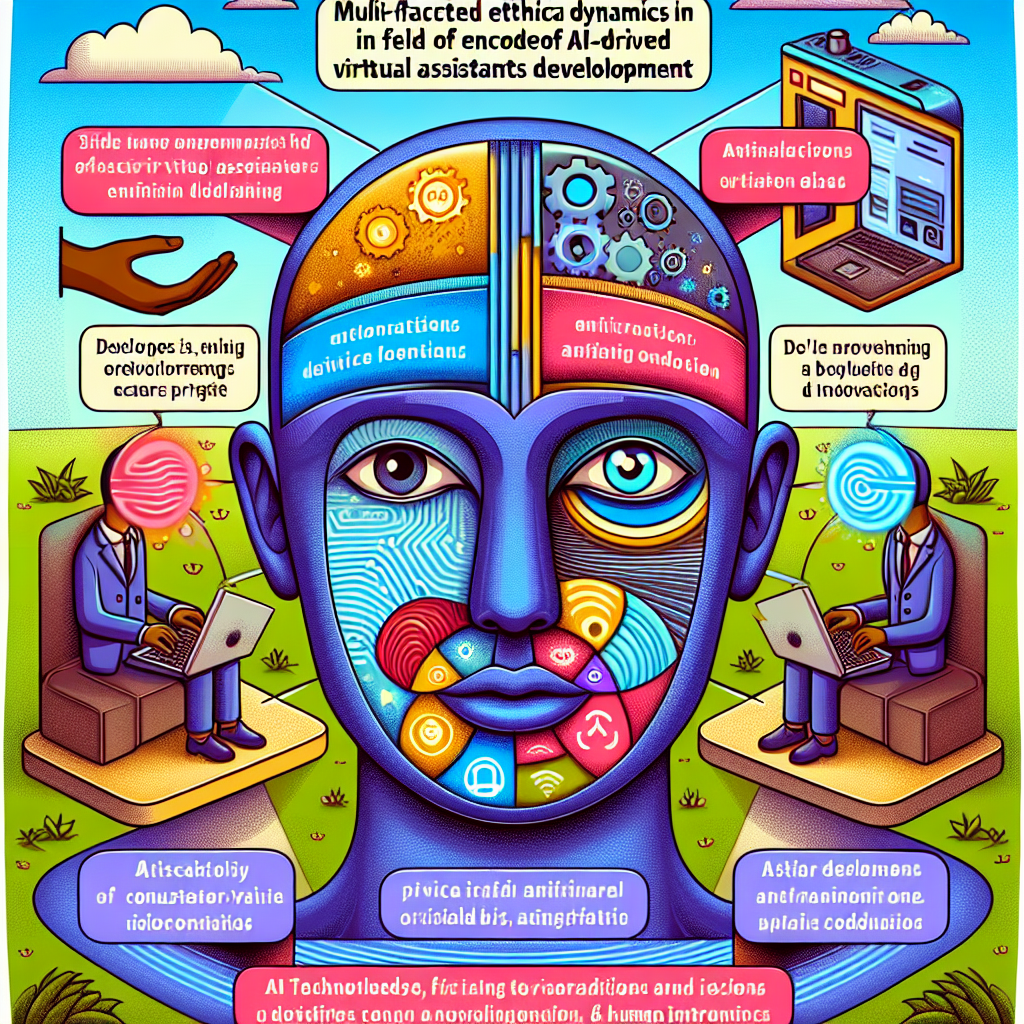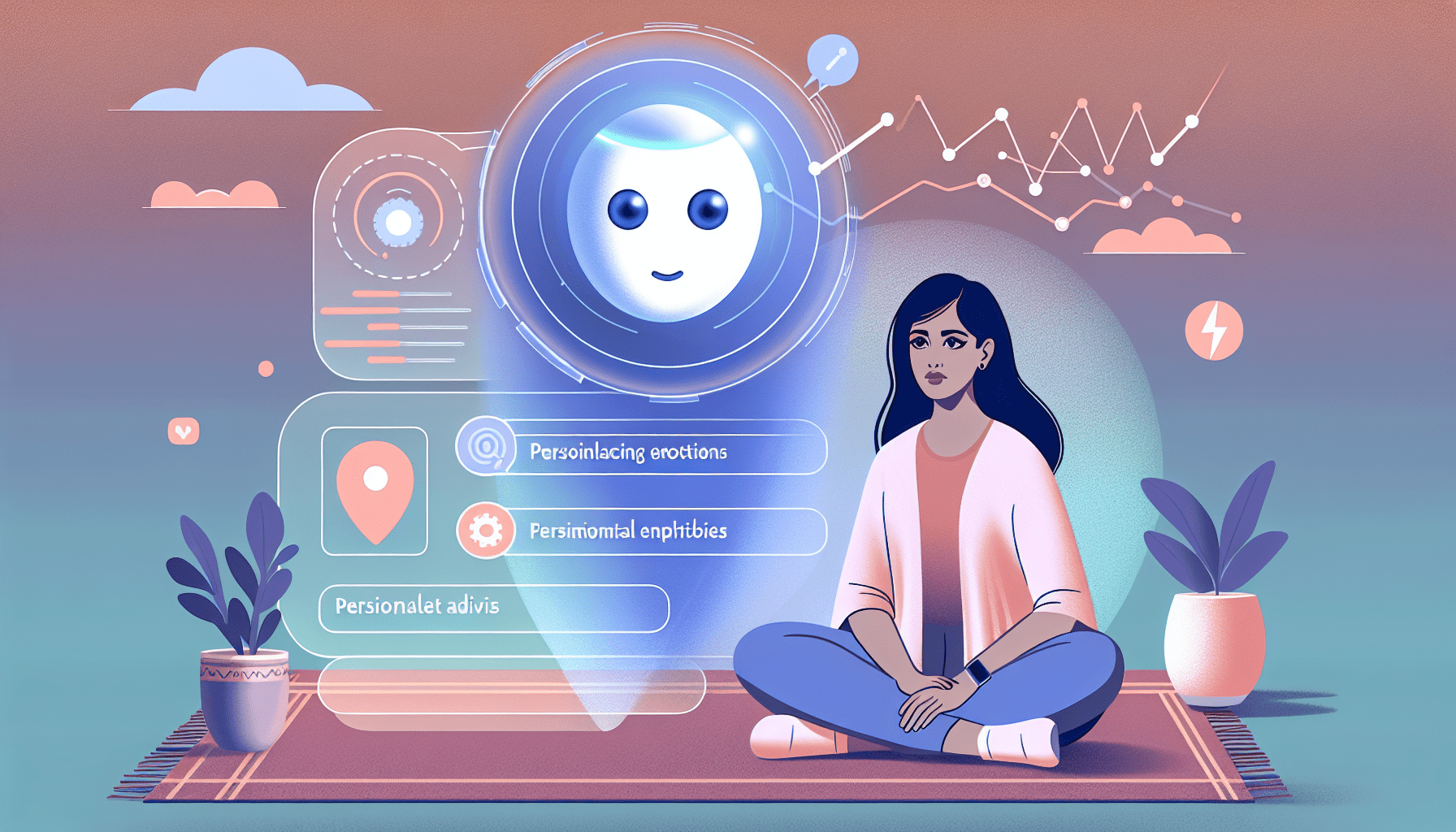Are you ready to explore the fascinating world of AI-powered virtual assistants? In this article, we will delve into the ethical considerations that arise during the development of these intelligent digital helpers. From the importance of user privacy and data security to ensuring unbiased decision-making, we will unravel the complexities involved in creating virtual assistants that are not only powerful but also ethically sound. So, grab a cup of coffee, sit back, and join us on this journey to discover the ethical dimensions of AI-powered virtual assistant development.

This image is property of images.unsplash.com.
Introduction
In the rapidly evolving world of artificial intelligence (AI) and virtual assistants, it is crucial to consider the ethical implications of these technologies. AI-powered virtual assistants have become an integral part of our daily lives, assisting us with various tasks and providing personalized experiences. However, as these virtual assistants gain more prominence, it is essential to address ethical considerations to ensure data privacy, fairness, transparency, accountability, inclusivity, human-AI interaction, ethical decision-making, and the societal impact of these advancements.
Data Privacy and Security
1.1. User Data Collection and Storage
When using AI-powered virtual assistants, your personal data is collected and stored for various purposes, such as improving the accuracy of voice recognition or providing personalized recommendations. It is important for companies developing virtual assistants to prioritize user data privacy by implementing stringent security measures. This includes using encryption protocols to safeguard sensitive information and obtaining user consent for data collection and storage.
1.2. Data Breaches and Identity Theft
With the increasing reliance on virtual assistants, the risk of data breaches and identity theft also grows. It is crucial for developers to continually assess and upgrade security measures to protect user data from unauthorized access. This involves regularly monitoring the system for vulnerabilities, conducting thorough security audits, and promptly addressing any potential breaches. By prioritizing data security, developers can ensure that users can trust these virtual assistants with their personal information.
Bias and Fairness
2.1. Unfairly Influencing User Decisions
AI-powered virtual assistants have the potential to impact user decisions, whether consciously or unconsciously. Developers must ensure that these virtual assistants do not exert undue influence or steer users towards biased or unfair choices. By implementing diversity and inclusion practices during the training and development of these virtual assistants, developers can mitigate the risk of unfair decision-making and uphold ethical considerations.
2.2. Representing Diverse User Demographics
To promote fairness and inclusivity, AI-powered virtual assistants should be designed to represent diverse user demographics. By incorporating a wide range of voices, experiences, and cultural backgrounds during the development phase, these virtual assistants can better understand and respond to the needs of different users. It is crucial to avoid biases in speech recognition, natural language understanding, and recommendation algorithms, ensuring that virtual assistants serve all users equally.
Transparency and Explainability
3.1. Providing Information on AI Decision-Making
AI-powered virtual assistants make decisions based on complex algorithms and data analysis. To build user trust, developers should focus on providing transparency and explainability in these decision-making processes. By providing users with clear information on how virtual assistants work, what data is being used, and how decisions are made, developers can help users understand and feel more comfortable with the technology.
3.2. Ensuring User Understanding and Control
In addition to transparency, it is vital to empower users with control over the virtual assistant’s actions. Users should be able to easily customize privacy settings, opt-out of certain data collection practices, and have the ability to review and delete their personal information. By prioritizing user understanding and control, developers can foster a sense of trust and ensure that users feel comfortable and confident in their interactions with virtual assistants.
This image is property of images.unsplash.com.
Accountability and Responsibility
4.1. Legal and Regulatory Compliance
Developers of AI-powered virtual assistants must operate within legal and regulatory frameworks to ensure accountability and responsibility. By closely adhering to privacy laws, data protection regulations, and ethical guidelines, developers can demonstrate their commitment to responsible AI development. Regular audits and compliance checks will help identify any potential gaps and ensure that virtual assistants are developed and deployed in a manner that meets legal requirements.
4.2. Addressing Potential Harms and Liability
Virtual assistants have the potential to cause harm, such as disseminating misinformation or perpetuating harmful biases. Manufacturers must proactively address these concerns and develop mechanisms to mitigate harm. This includes robust content moderation practices that prevent the spread of false information and biased content. It is also essential to establish clear liability frameworks to hold developers accountable for any negative consequences resulting from the use of virtual assistants.
Inclusivity and Accessibility
5.1. Cross-Cultural and Multilingual Considerations
AI-powered virtual assistants should be designed to cater to a diverse range of users worldwide. This includes considering cross-cultural differences and providing support for multiple languages and dialects. Developers must invest in training and data collection for different cultures and languages to ensure that virtual assistants can understand and respond appropriately to users from various backgrounds. By promoting inclusivity, virtual assistants can provide equitable experiences for all users.
5.2. Accessibility for Users with Disabilities
To ensure equal access to AI-powered virtual assistants, developers must prioritize accessibility for users with disabilities. This includes incorporating features such as text-to-speech functionality, visual cues for audio content, and compatibility with assistive technologies. By designing virtual assistants with accessibility in mind, developers can create a more inclusive and empowering user experience for individuals with disabilities.

This image is property of images.unsplash.com.
Human-AI Interaction
6.1. Establishing Clear User-Agent Boundaries
Developers must establish clear boundaries between AI-powered virtual assistants and human agents to avoid user confusion and potential ethical dilemmas. Users should be made aware when they are interacting with virtual assistants and when a conversation transitions to a human agent. By effectively communicating these boundaries, developers can manage user expectations and ensure a smooth interactional experience.
6.2. Promoting Ethical Decision-Making in User-Agent Collaboration
In scenarios where virtual assistants collaborate with human agents, it is essential to promote ethical decision-making. Developers should train both virtual assistants and human agents to recognize and address bias, maintain privacy, and provide fair and accurate information. By fostering a collaborative approach grounded in ethical principles, developers can enhance the overall quality of user-agent interactions.
Ethical Decision-Making
7.1. Incorporating Ethical Frameworks and Guidelines
Developers must incorporate ethical frameworks and guidelines in the development and deployment of AI-powered virtual assistants. This includes adhering to principles of fairness, justice, and non-discrimination. By actively considering the ethical implications of their decisions, developers can create virtual assistants that align with societal values and uphold ethical standards.
7.2. Evaluating and Monitoring Ethical Impact
To ensure ongoing ethical adherence, developers should regularly evaluate and monitor the impact of AI-powered virtual assistants. This includes conducting audits, soliciting user feedback, and analyzing potential biases or unintended consequences. By adopting a proactive approach to ethical evaluation, developers can identify and address any ethical concerns that arise throughout the lifecycle of the virtual assistants.

Societal Impact and Job Displacement
8.1. Assessing Potential Economic and Social Consequences
The widespread adoption of AI-powered virtual assistants may have economic and social consequences, including job displacement and changes in labor markets. Developers must assess these potential impacts and work towards mitigating any negative consequences. This may involve collaborating with policymakers, industry experts, and stakeholders to develop strategies for reskilling and supporting individuals affected by job displacement.
8.2. Reskilling and Support for Affected Individuals
To alleviate the potential negative societal impact of AI-powered virtual assistants, developers should prioritize reskilling and supporting individuals affected by job displacement. This may involve providing training programs, counseling services, or facilitating job transitions in emerging fields. By investing in the well-being and career opportunities of affected individuals, developers can mitigate the potential negative consequences associated with technological advancements.
Conclusion
In the expanding landscape of AI-powered virtual assistants, ethical considerations play a crucial role. By addressing data privacy and security, bias and fairness, transparency and explainability, accountability and responsibility, inclusivity and accessibility, human-AI interaction, ethical decision-making, and societal impact, developers can ensure that these virtual assistants are developed and deployed in a responsible and ethical manner. By embedding ethical considerations into the foundation of AI-powered virtual assistants, we can harness the full potential of these technologies while safeguarding user rights, promoting fairness, and fostering a positive impact on society.






